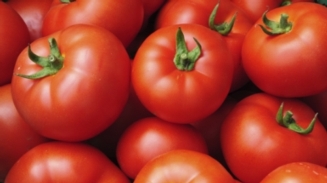
绿色浇灌适得其反
Traces of Pharmaceuticals Dwell In Wastewater-Grown Veggies
绿色浇灌适得其反
Volunteers who ate veggies grown in wastewater had higher (but still safe) levels of an epilepsy drug in their urine, compared to subjects who ate freshwater-grown veggies.
吃下污水培育的蔬菜的志愿者的尿液中的癫痫药物浓度较吃下净水培育的蔬菜的志愿者高。
播音/撰文 克里斯托弗·因塔利亚塔
翻译 Meatle
审校 Arc Ma
Here's a way to fight the ongoing drought in California: use more wastewater for irrigation. The state's water board suggested that strategy a few years ago, but so far, of the trillions of gallons of water used for irrigation, only about six percent is wastewater. But in Israel, also notoriously dry, halfthe country's irrigation water is reclaimed water. The question is, could pharmaceutical residues, found in trace amounts in wastewater, make it into veggies—and onto your dinner plate?
为了对抗干旱,加利福尼亚州使用污水灌溉作物。该州的供水委员会在数年前作出了上述的建议,然而到现在,在数万亿加仑用于灌溉的水中,仅有6%是污水。但在以色列,总所周知的干旱之地,其灌溉用水半数为回用水。问题在于,废水中痕量的药物会否经由蔬菜富集,并最终到达我们的餐桌?
Israeli scientists focused on an epilepsy drug called carbamazepine, often found in wastewater. They detected trace quantities in lettuce, parsley, peppers and other wastewater-grown veggies. They then fed volunteers either those veggies, or organic ones grown in freshwater. After a week, the wastewater group did indeed have significantly higher levels of the chemical in their urine, compared to the freshwater group. Switching to a freshwater-grown diet quickly reversed the effect. The finding is in the journal Environmental Science & Technology. [Ora Paltiel et al, Human Exposure to Wastewater-Derived Pharmaceuticals in Fresh Produce: A Randomized Controlled Trial Focusing on Carbamazepine]
以色列的研究人员着眼于一种常被在废水中找到的癫痫药,卡巴西平 (carbamazepine)。他们在生菜、欧芹、大蒜和其他污水浇灌的作物中发现了痕量的药物。然后,他们把这些蔬菜,还有一些用净水浇灌的蔬菜提供给志愿者食用。一周过后,对比吃下净水浇灌蔬菜的一组,吃下污水蔬菜的组的尿液中药物含量更高。而当这些志愿者转为食用净水浇灌蔬菜,短时间后他们的尿液就恢复了正常。这项发现发表在《环境科学与技术》上。
One huge caveat: the amount of the drug in the volunteers' urine was some 40,000 times lower than would be found after just one therapeutic dose of the drug. And the researchers say it's unlikely that exposure to such tiny quantities poses any risk. But the result does suggest it's at least possible to ingest unwanted pharmaceuticals in your salad. Something for public health officials to investigate, as they weigh green water policy with what's in our greens.
警告:志愿者尿液中的药物含量不足接受癫痫药物治疗的患者的尿液中的40000分之一。研究人员表示,如此少量的药物对人类身体造成风险的可能相当低。同时,研究人员也表示这项研究发现了至少我们有会在不情愿的情况下摄入药物。这需要公共健康部门进行进一步研究,他们的绿水政策使我们恐惧。
未经书面许可任何人不得复制或镜像
京ICP备11000850号-1
 京公网安备11010502039775号
京公网安备11010502039775号 信息网络传播视听节目许可证0111611号
国家科技基础条件平台

















